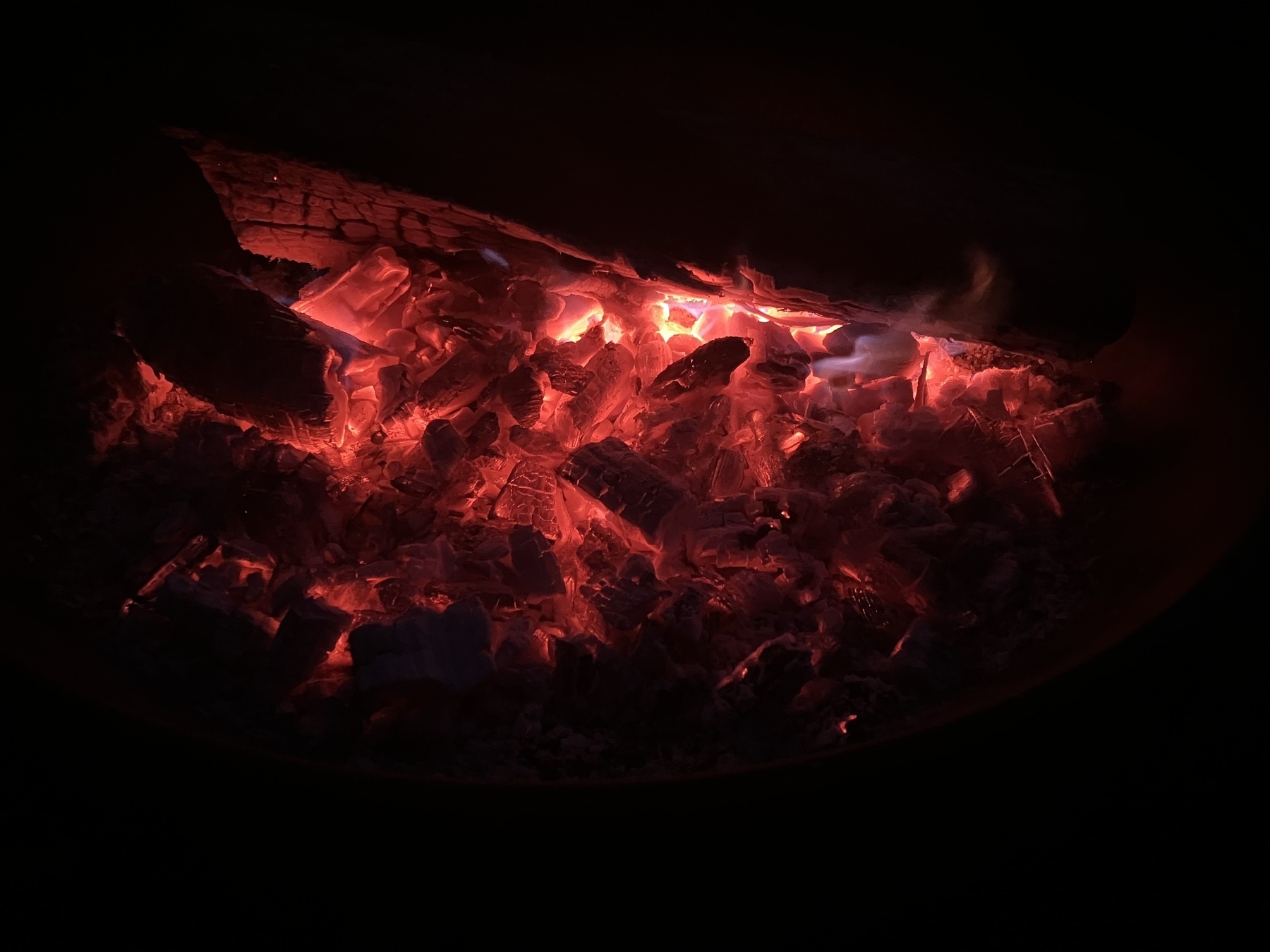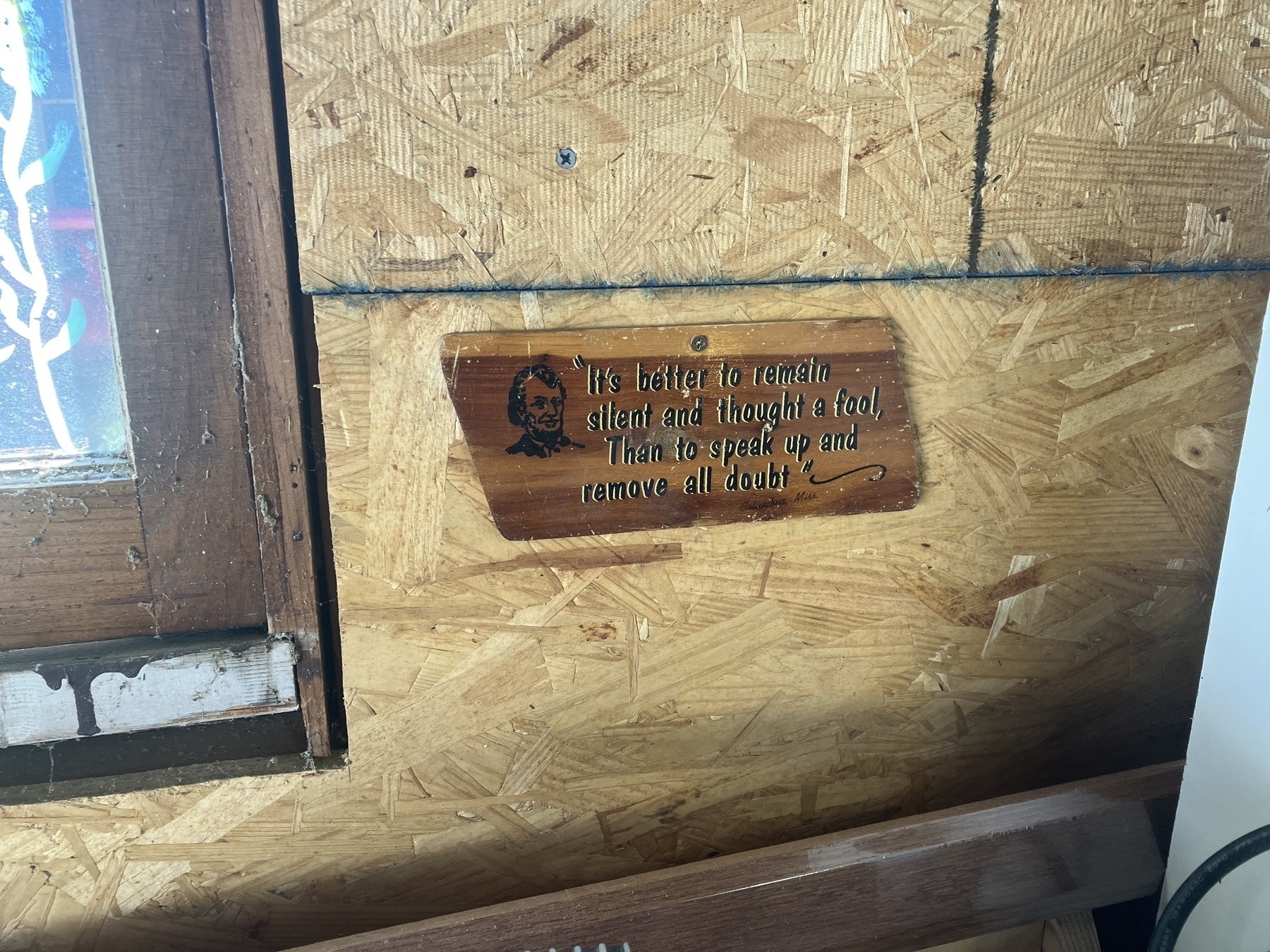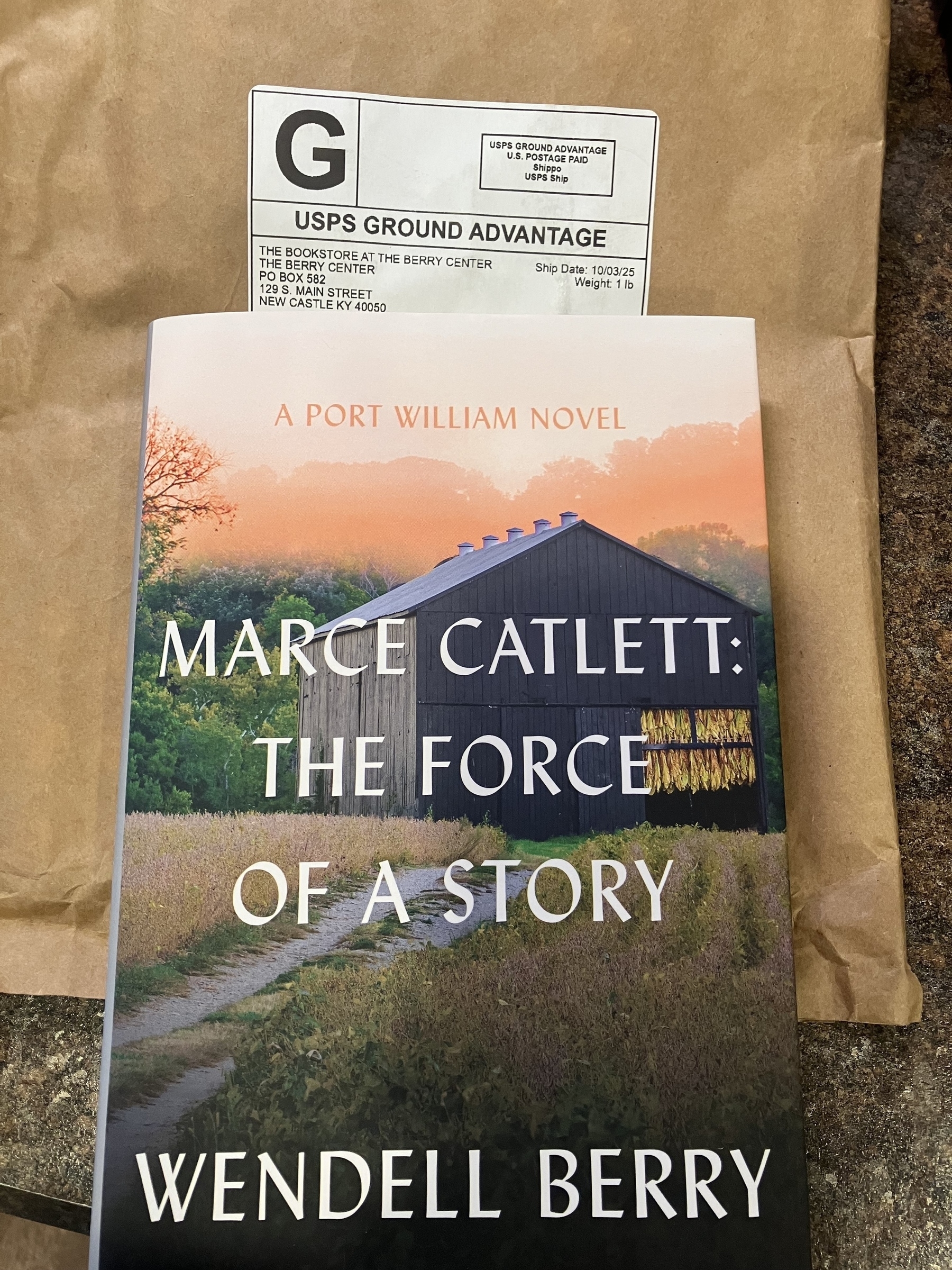We also put up our Halloween lights today

We also put up our Halloween lights today

Backyard fire on this Sunday evening.

I’ve often thought of @patrickrhone’s “master generalist” self-description. I may adapt it for myself as “master piddler.” At this moment, for instance, I’m in my garage writing this instead of working on the shadow box. Also, the greasy burger joint is about to open and I’m hungry. The box’ll wait.
My mom gave me this roadside tchotchke last week. Looks to be from Columbus, Mississippi or Missouri, neither of which have a Lincoln connection as far as I can tell. But that’s part of the weird Americana charm, right? I have a long memory of it hanging in our garage, so I’ve hung it in mine.

I’ve accepted an invitation to join the finance committee of my local community foundation in January. Can’t be much of a localist without putting in some practice.
Thich Nhat Hanh’s teaching on helping hungry ghosts is very good. Finding a way to compassion for your parents when the relationship has not always been good truly is as important as he says.
Peter Hahn: Our sequoia is also special to me because we share an origin story - we are both originally American. There were sequoias in Europe until the last ice age, but all Giant Sequoias today are native to North America, more specifically to the Sierra Nevada in California; the first ones planted in Europe were planted in the 1850s. There are times, especially when I’m working in the vines and look up to see the sequoia standing before the east façade of the house, that the tree becomes a portal into the past: I imagine it being planted, and hear the clattering of horse-drawn carriages pulling up in the courtyard below, and the generations of workers and inhabitants strolling by, the builders, farmers, gardeners, growers, winemakers.
I have a tab open with Wordsworth’s “The World is Too Much With Us” and I’ve read it several times over the last few days. I think I have @tinyroofnail to thank for this.
As I drove by the Landmark Baptist church near our house, I decided to refresh my memory on Landmarkism. I had a copy of Trail of Blood as a teenager and toyed with the idea of using some of its arguments to make a similar genealogy of the fundamentalist Pentecostal group I was in.
Fresh from Henry County, Kentucky
